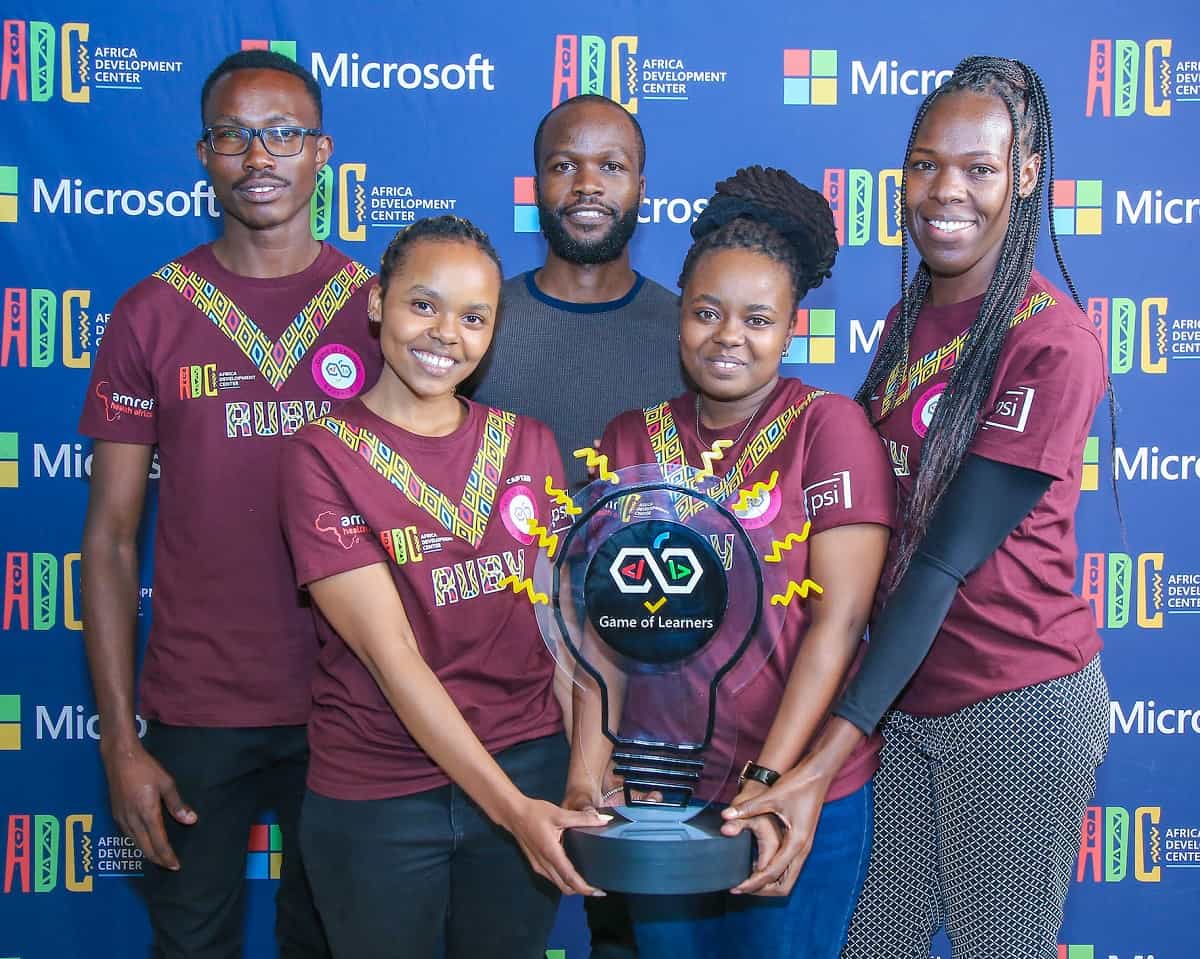Four university students have emerged winners of the fourth season of the Game of Learners (GOL) competition with their medical language translation app. The app, called ‘Jambo Care,’ translates the local dialect into English or Kiswahili to make it easier for doctors to diagnose patients’ symptoms remotely. The solution beat 16 other innovations from universities across Africa to win the season. This season’s challenge aimed to develop technological solutions for Africa’s health challenges and featured more than 80 students from 11 African countries, with an equal balance of men and women.
The Microsoft African Development Centre (ADC) partnered with Population Services International (PSI) and AMREF Health Africa in a five-week hackathon to design and build technology solutions that make primary healthcare more accessible to people. This was informed by the fact that African healthcare systems face several challenges, including inadequate health infrastructure, a shortage of healthcare personnel, limited access to essential medicines, low health literacy, and poor health-seeking behavior. Increasing access to affordable digital technology provides an opportunity to address these challenges.
The GOL sought to answer the question of how advances in digital technology can improve consumers’ access to health information, products, and services. Throughout the season, the three partners provided participants with tailored training on health system challenges, digital health development principles, and how to use insights to advance user-centered designs. Other topics addressed included customer acquisition for digital health solutions and health financing. In five groups, participants had five weeks to develop solutions, including the most recent advancements in digital health technology, such as Artificial Intelligence, Telemedicine, and Chatbot solutions.
Speaking about their innovation, Lucy Alphonce, the Team Ruby captain, said: “Our translator aims to bridge the communication gap whereby the healthcare provider and the recipient don’t have a common language of communication. This will ensure effective healthcare delivery.”
As part of the next steps, PSI will provide some students with internship opportunities to progress their knowledge in digital health. At the same time, AMREF Health will offer three months of technical support to the best two teams to advance their innovations. Ruth Ferland, the Regional Head of Student & Community Engagements at Microsoft ADC, challenged the students aiming to take their projects to the next level to resubmit them in the Microsoft Imagine Cup, the premier global student technology competition that offers students the opportunity to develop inspiring leading-edge technology solutions in one of four competition categories—Earth, Education, Health, and Lifestyle.
Wycliffe Waweru, PSI’s Deputy Director of Digital Health & Monitoring, said: “As PSI, we are looking at two opportunities to advance these innovations by the students. First, we are looking for an opportunity with innovation hubs that can host some of the solutions that the young people have developed and see if they can be brought to market. For individuals interested in pursuing a career in digital health, we shall offer internships for them to come and work with our teams for practical and hands-on interaction with other digital health solutions.”
Kitawa Wemo, the Innovations Lead at AMREF Health, said: “For us, our digital and data strategy is focused on supporting young people that are building digital technologies for health. By leveraging digital technologies, we can improve data management, promote telemedicine and remote patient monitoring, provide health education, and promote global collaboration and knowledge-sharing.”
Read: Microsoft Confirms Xbox Game Studios Game Camp for Africa This July

